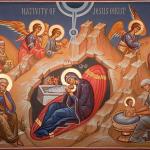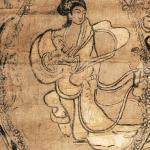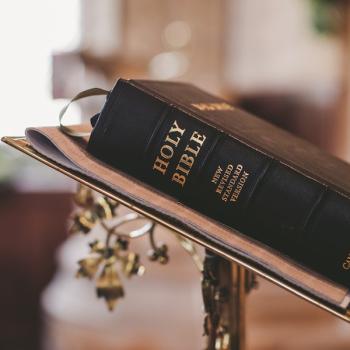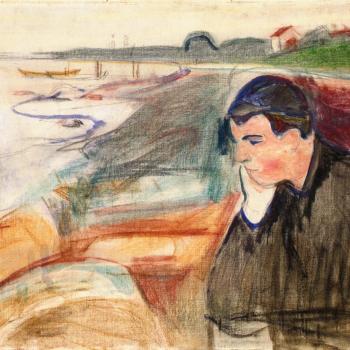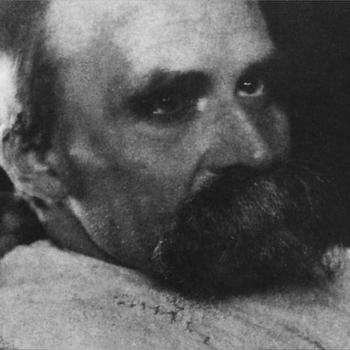Thus at the very beginning of Stephen’s story we see a tension developing between the various parts of the Christian community. The universal Faith has had to remind itself of its duties toward its constituent parts. His role is as a mediator, as one who ensures equity within the developing religion, even as its distinctions continue to create trouble.
But this is not all. During his speech, Stephen makes a point apropos of this universal-particular problem. After retelling the story of Israel from the time of Abraham, he announces that God is the god of all peoples, the righteous Lord of all lords:
But Solomon built a house for him. Yet the Most High does not dwell in houses made by human hands. As the prophet says: ‘The heavens are my throne, the earth is my footstool. What kind of house can you build for me? says the Lord, or what is to be my resting place? Did not my hand make all these things?’ You stiff-necked people, uncircumcised in heart and ears, you always oppose the holy Spirit; you are just like your ancestors. Which of the prophets did your ancestors not persecute? They put to death those who foretold the coming of the righteous one, whose betrayers and murderers you have now become. You received the law as transmitted by angels, but you did not observe it. (Acts 7:47-53)
I can imagine this passage being used to justify anti-Semitism. But that’s not what I see here. Stephen is clearly accusing those present of failing to recognize Jesus Christ as the messiah. In this vein, he compares them to those who slew the prophets. Before this, however, he declares that God has no house, no one individual place of dwelling. His home on this earth is felt in the stirrings of the “holy Spirit” that his opponents have neglected, a spirit that soon enough will win converts among Gentiles and Jews. Here Stephen evangelizes even as he testifies to the fact that God is not merely the god of a particular people, but of all created beings. It is in this way that his audience has failed the Lord.
This is St. Stephen’s universalism: his testament to the fact that God rules over all things, that He cannot be housed in one place (the Temple), though His people may themselves be distinct (at this point Greek-speaking and non-Greek-speaking Jews, whose tensions Stephen is partly tasked with easing). In a way, he is announcing the Church, a union of particular peoples into a universal faith, intended to preach the truth to the world. The Catholic Church, whatever its mistakes, does this today: we have a beautiful diversity of rites and traditions, a vast array of charisms, all united in one faith.
On the cusp of 2018, this seems a fitting reflection. In a time of renewed particularism (white identity movements, ISIS’s fundamentalist desire to abolish particularity in Islam, and the still-living force of American exceptionalism), I feel moved to remind myself and all of us of the universal and evangelical call of the Christian faith. We are called to make disciples of all nations, to recognize the necessary relationship between our universal religion and the particular, concrete instances that weave it together so beautifully, that give it life and express it. May St. Stephen’s story guide us toward that remembrance; may he pray for us.


